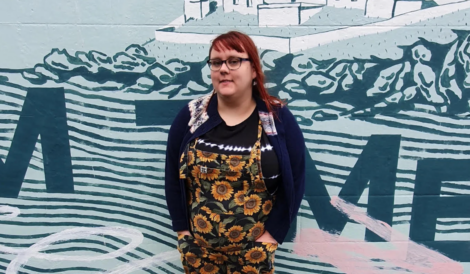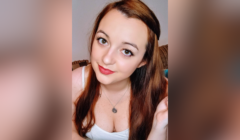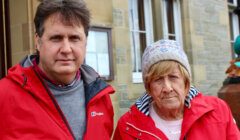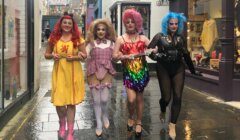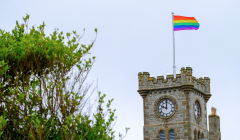Shetland Lives / Writer Hannah Nicholson on Pride: ‘Queer folk have always existed’
In the first instalment of our series focusing on LGBT+ Shetlanders ahead of this weekend’s Pride celebrations, Shetland News spoke to writer and library assistant Hannah Nicholson
Hannah now lives in Aberdeen and is surrounded by a thriving LGBT+ community. Growing up in Brae in the 1990s couldn’t have been more different.
“I was probably in my teens somewhere before I realised I wasn’t straight,” Hannah said.
“If you did suspect that you weren’t straight, you would never openly admit that in school at that time… I would have been a complete social pariah.”
Her time at primary school was overshadowed by Section 28.
Section 28 was a piece of legislation introduced by the Conservative government in 1988, the same year Hannah was born.
The law banned “promotion of homosexuality” meaning there was zero education about LGBT+ identities or issues. It was repealed in Scotland in 2000.
“Section 28 was abolished in time for me starting secondary school, but the powers that be didn’t put in any kind of framework to undo the damage it did until many, many years after they’d actually abolished it.
“I kind of more got education about [LGBT+ people] from watching TV, obviously the internet was becoming a thing when I was younger…occasionally magazines but it wasn’t mentioned much.
“I didn’t really meet [many folk] that were open about their sexuality until I went away to uni.”
Hannah studied her undergraduate degree at the University of Strathclyde in Glasgow. Becoming friends with an openly bisexual person prompted her to think about her own orientation again.
“At that point I thought there was only four letters in the acronym [LGBT+],” she said.
“I knew I wasn’t a lesbian because I was still attracted to men, but I suspected I might be attracted to women. I knew I wasn’t trans because I was happy enough being a woman.
“For a while I thought I might be bi, and even then, that label did not just sit 100 per cent well we me.
Become a member of Shetland News
“It wasn’t until I was into my twenties that I realised that it was possible for a human being to be asexual, because when you’re at school they teach you that only applies to plants.”
Asexuality is a sexual orientation for someone who experiences little to no sexual attraction.
“The more I read about it, I thought ‘this actually sounds like me’.
“Now that I’ve started admitting that, it makes sense. I had very little interest in getting together with anybody as a youngster.”
Like many identities, asexuality is a spectrum. One person may never feel attraction, whilst another might sometimes.
Some asexual people may also desire exclusively romantic relationships. Those who experience little to no romantic attraction on the other hand, are known as aromantic.
“In my case, sexual attraction is extremely conditional but I’m still capable of romantic attraction,” Hannah explained.
“I actually couldn’t tell you [the first person I came out to]… I don’t think I came out to anybody in particular, I just kind of mentioned it.
“National Coming Out Day 2017 was the first time I mentioned [my sexuality] on social media. It felt good to actually say.”
Hannah was presented with the Scottish Book Trust New Writers Award in 2021. She often explores LGBT+ themes in her work.
“I’ve been doing that recently, I have written a couple of poems about being queer,” she explained.
“I’ve got two Shetland dialect ones… one’s called Wir Ay Been Here and the other one’s called Da Wirset Rainbow.
“I have definitely been exploring it more the last couple years or so and it feels kind of good to do that.
“Especially if somebody then reads it and says ‘I really like that’… it’s a good feeling to have when somebody tells you that your writing has had a good effect on them.
“It encourages me to write more of it for sure.”
Having lived in Shetland and the Scottish mainland, Hannah believes attitudes to LGBT+ folk are quite similar in both locations.
“I guess that Shetland’s making progress because the Anderson obviously recently won an award for LGBTQ+ inclusivity… I know Brae’s been pretty good at that too,” she said.
“That just makes me blyde because I wouldn’t have felt safe being out 20 years ago when I was a pupil there.
“Improvements in education are always a good thing and I think it’s also worth emphasising that queer folk have always existed.”
Become a member of Shetland News
Shetland News is asking its readers to consider paying for membership to get additional perks:
- Removal of third-party ads;
- Bookmark posts to read later;
- Exclusive curated weekly newsletter;
- Hide membership messages;
- Comments open for discussion.
If you appreciate what we do and feel strongly about impartial local journalism, then please become a member of Shetland News by either making a single payment, or setting up a monthly, quarterly or yearly subscription.


